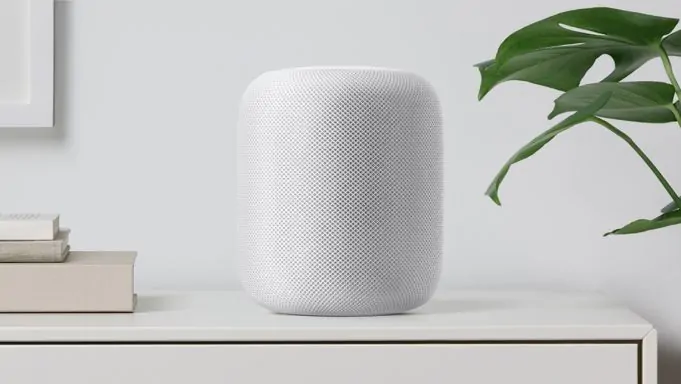It’s arriving Feb. 9 (pre-orders start this Friday, Jan. 26, 2018), about two months later than originally planned. Ouch. And, it’s hard not to think that with a premium price of $349 the Apple HomePod is going to be a (very) tough sale. Especially so given it will not feature multi-room music at launch — Apple promises the feature sometime in 2018.
Again, Apple is trailing its key competitors, Amazon Echo and Google Home. Both rivals not only offer multi-room audio (that’s very easy to setup and use), but they also are available at a variety of price points, all lower than the premium HomePod. For example, a lowly, but very useful Echo Dot retails for far less on Amazon. Often the tiny hockey puck can be found on sale for even less.
For once Apple is looking tired and slow. And less innovative.
Apple is no stranger to the premium game. Almost all Apple products are priced higher than the competition. That’s the price consumers need to pay to benefit from quality design and engineering, and an integrated hardware and software experience that is among the, if not the, best. Well, that’s the theory at least. In practice, the strategy seems to be working out pretty well for Apple. Just check AAPL stock and any of the key financial metrics. Investors seem happy.
Still, it’s hard to imagine how Apple is going to steal away share from Amazon and Google after arriving so late to the smart speaker market.
Amazon has a huge lead, having entered with the original Echo speaker it seems like, eons ago. Now it offers no less than six (!) Alexa-based products in its Echo speaker and smart home line-up. Worse still for Apple and others, it’s aggressively licensing the technology. You can find Alexa in televisions from LG and other smart speakers, among other smart home products.
Google had made good inroads over the last twelve months, and now has a Mini and a Max to rival the Echo Dot and new updated Echo speaker. Plus, Google Home integrates beautifully with Google Assistant and Chromecast — seems to me the music plus video elements are key to winning over hearts and minds for the race to smart home domination. Google seems to be settling in to a strong #2 position.
Apple does occasionally enter markets later than others. So, yes, laggard it is, at times. In many cases itt hasn’t hurt the company. In fact, the additional time can sometimes Apple better read a market and anticipate customer needs. However, with HomePod it not only lags in terms of getting to market, but also in delivering on a key (I’d say must have) feature in whole home audio.
As I wrote last month we can assume would-be smart speaker buyers have already bought Echos and Google Homes over the holiday shopping season. Big miss, as I said, for Apple.
Come February 9, who will buy the HomePod?
Loyalists will. Those who buy every single Apple product at launch. Apple Watch. iPad. iPhone X. Apple TV. MacBook Pro. You name it. They’re there. And they’re not exactly an insignificant lot. So, for Apple, there’s some built-in revenue just by virtue of them being… well, being Apple.
But to really break on through to the other side — to reach the lucrative mainstream buyer — Apple needs to offer something unique and compelling. What differentiates HomePod from Amazon Echo or Google Home?
Apple says fidelity. It’s promising high quality audio. Hence, the premium price.
For now that space is occupied predominantly by Sonos.
The Sonos One is a good example of a well performing smart speaker that is reasonably priced. At $199, you get a great sounding speaker, comprehensive apps with tonnes of streaming music services, and, Alexa voice assistant built in. All for almost half (!) the price of HomePod.
Tough to compete against that, no?
HomeKit purists and those running myriad of Apple Home-controlled smart plugs and lights will likely gravitate to HomePod, since it can act as a smart home hub. That makes sense. But I’m not convinced the HomeKit has been the runaway success that Apple envisioned. For everyone else those cheaper Echo and Google Home products look pretty tempting by comparison.
HomePod is almost here.
For once, though, Apple is looking tired and slow. And less innovative.


